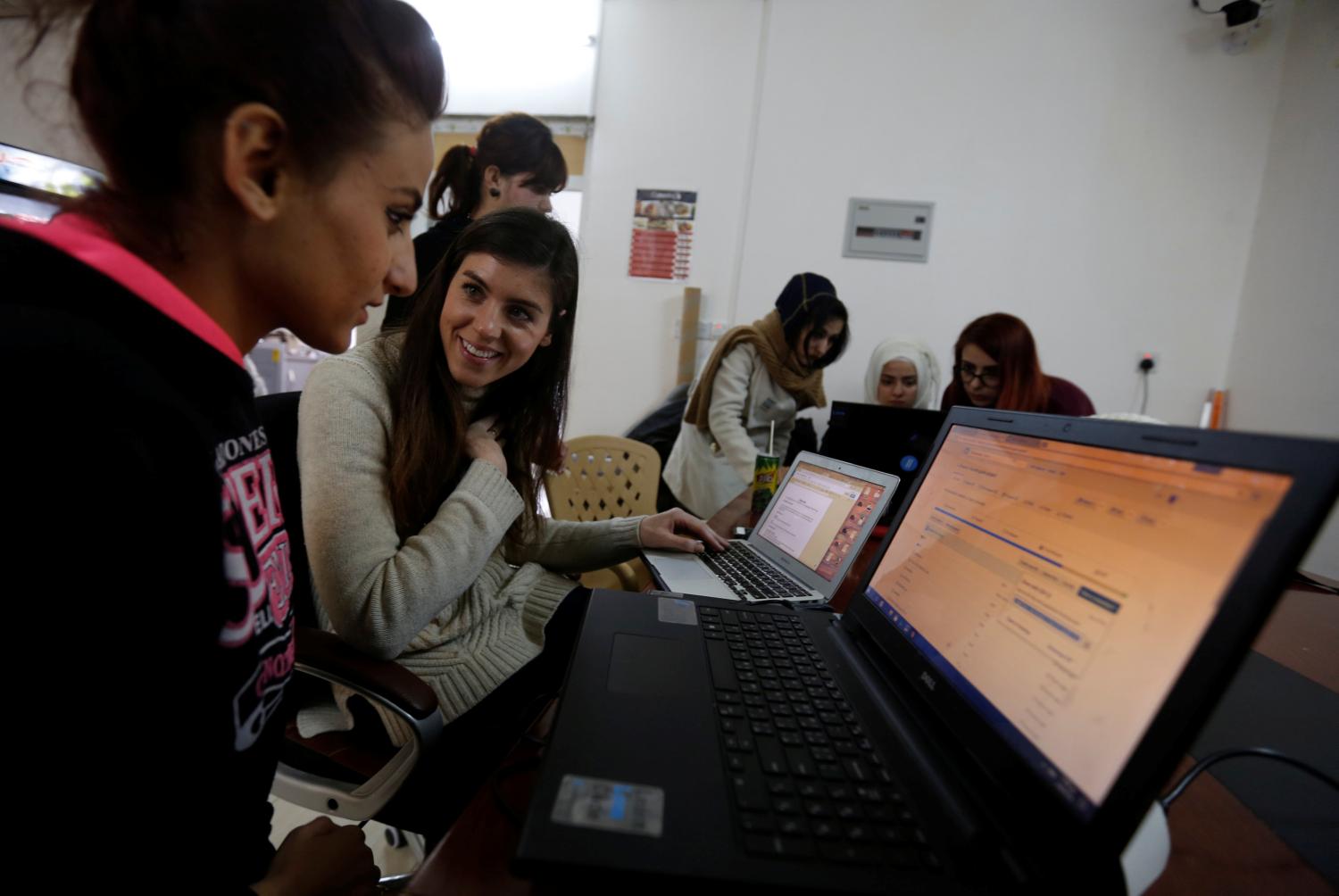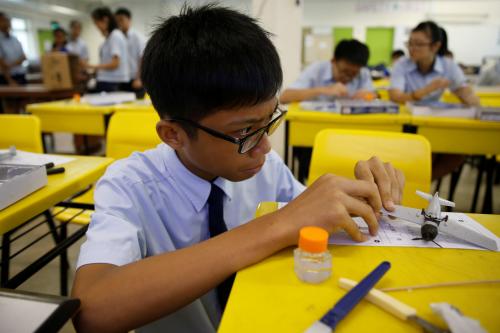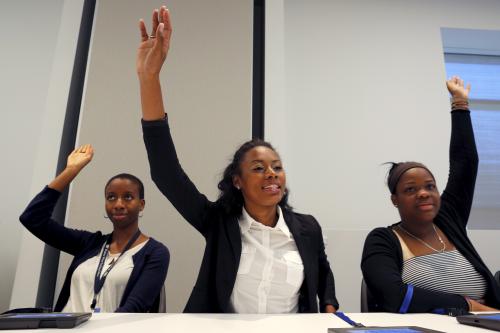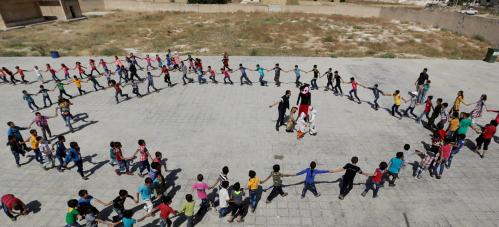The importance of work-ready skills has long been endorsed, but only recently have we seen a move from focus on specific skills for jobs (vocational skills) to generic or 21st century skills necessary for all entering the workforce. But while enthusiasm for “skills” in education abounds, let’s think about some realities.
A recent UNESCO report highlights the challenges for education systems in teaching and assessing the skills for this century. These challenges include friction with traditional priorities set by academic disciplines and competition for high rankings among students, schools, and countries; transitioning from “chalk-and-talk” pedagogies in favor of dynamic pedagogies; and the big one, ignorance. We are only beginning to explore these 21st century skills and how, more specifically, students might demonstrate them at different levels of quality and sophistication. In the absence of a complete understanding of the actual skills acquisition process and how students might vary in how they demonstrate these skills, teachers remain at a loss in how to provide learning experiences for students in their “zone of proximal development.”
And, quite apart from these issues, what are these skills? Is empathy a skill? Is perseverance a skill? If so, it would mean that we understand what the building blocks of these are and how those building blocks need to be situated to form the foundation for later, higher-level blocks. It means we know how to introduce the skill to a novice learner in a way that is accessible to that learner, and we know what prompts and stimuli to provide to that learner to lead them to higher and more developed proficiencies.
Individuals’ outlooks can be shaped by life events, but attitudes and outlooks, by mere virtue of having been influenced, are not therefore skills in the traditional sense.
Do we have this level of understanding of all the “skills” that are being demanded of our education systems? These range from subject-specific numeracy and literacy abilities to more elusive or intangible skills like the ability to work in groups that include people from diverse backgrounds; the ability to communicate effectively, think critically, and solve problems efficiently; as well as the ability to persist when faced with challenges (also known in the U.S. as grit), be open to new experiences, be curious and motivated to learn, and be imaginative. The short answer is, of course, no. So, let us put away the argument that just because a human characteristic is malleable, it is therefore a skill, and by implication can be taught and learned through a basic education system. Individuals’ outlooks can be shaped by life events, but attitudes and outlooks, by mere virtue of having been influenced, are not therefore skills in the traditional sense.
The New Vision for Education initiative of the World Economic Forum identifies 16 skills necessary for success in the 21st century. These fall under three broad categories: foundational literacies, competencies, and character qualities. Foundational literacies—such as literacy, numeracy, information and communication technologies literacy, and financial literacy—are the core skills that serve as a base for more complex competencies. Competencies—such as critical thinking, creativity, communication, and collaboration—are needed when faced with complex challenges like evaluating ideas, coming up with innovative solutions, and conveying information to others. Character qualities—such as adaptability or cultural awareness—are those that are valued in our changing environments. The important issue, however, is whether these can be addressed in mainstream education systems.
Let’s look at two examples that focus on valued skills and provide frameworks and approaches to demonstrate what can be taught and learned in our formal education systems.
The Organization for Economic Cooperation and Development in its Future of Education and Skills: OECD Education 2030 Framework proposes a broad range of dimensions that students need to learn for the 2030 world, across the categories of knowledge, skills, attitudes, values, and competencies.
Figure 1: What do children have to learn?
Source: Future of Education and Skills: OECD Education 2030 Framework. Organization for Economic Cooperation and Development.
OECD’s model shows the different types of knowledge (e.g., disciplinary, practical), skills (e.g., social and emotional, cognitive), values, and attitudes are closely intertwined to produce the competencies needed to engage successfully in the world. As a starting point, the OECD is using the framework to focus on developing global competence as one dimension of what students need to learn in order to meet the challenges that lie ahead in the globalized world.
By identifying the skills that are believed to be important and can be taught, we can begin putting our effort toward how to effectively integrate the teaching of these skills within education systems.
Taking a practical approach, Turnaround for Children’s Building Blocks for Learning is an evidence-based framework for comprehensive student development in schools that focuses on the skills and mindsets that enable students to learn and succeed. Specifically, the skills and mindsets are those that are measurable and teachable, as opposed to fixed personality and character traits. For instance, given the lack of strong evidence that grit is teachable, the framework, instead, includes key teachable building blocks that contribute to grit, such as self-regulation. By identifying the skills that are believed to be important and can be taught, we can begin putting our effort toward how to effectively integrate the teaching of these skills within education systems. The Turnaround approach provides us with a pathway to analyze what can be taught across frameworks proposed by organizations such as the World Economic Forum and OECD, rather than making assumptions that whatever is identified as critical for student success is automatically teachable and learnable at large scale.
There is little doubt that from either society or workforce perspective we must prepare children and youth for success in the 21st century. Let’s focus on the skills that we both believe are important and that we have reasonable grounds to believe can be taught.
The Brookings Institution is committed to quality, independence, and impact.
We are supported by a diverse array of funders. In line with our values and policies, each Brookings publication represents the sole views of its author(s).










Commentary
Let’s aspire, but be realistic: What skills can be taught for the 21st century?
January 17, 2017